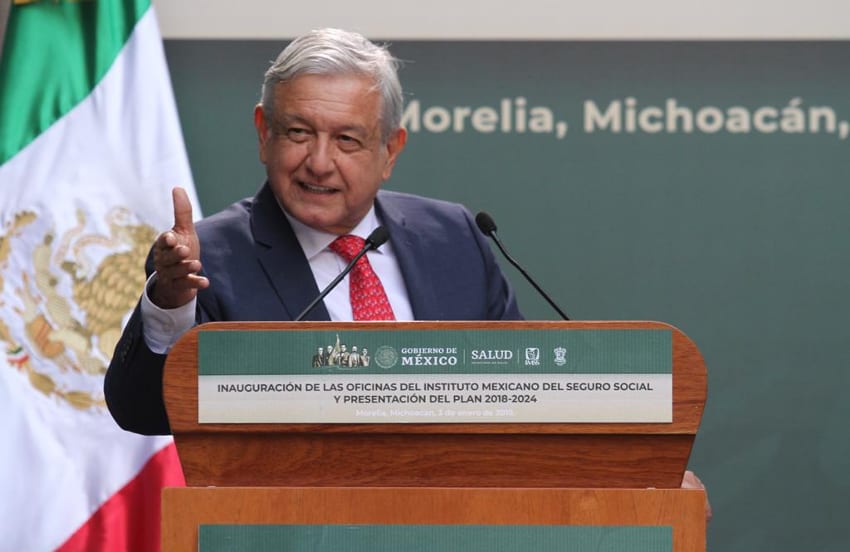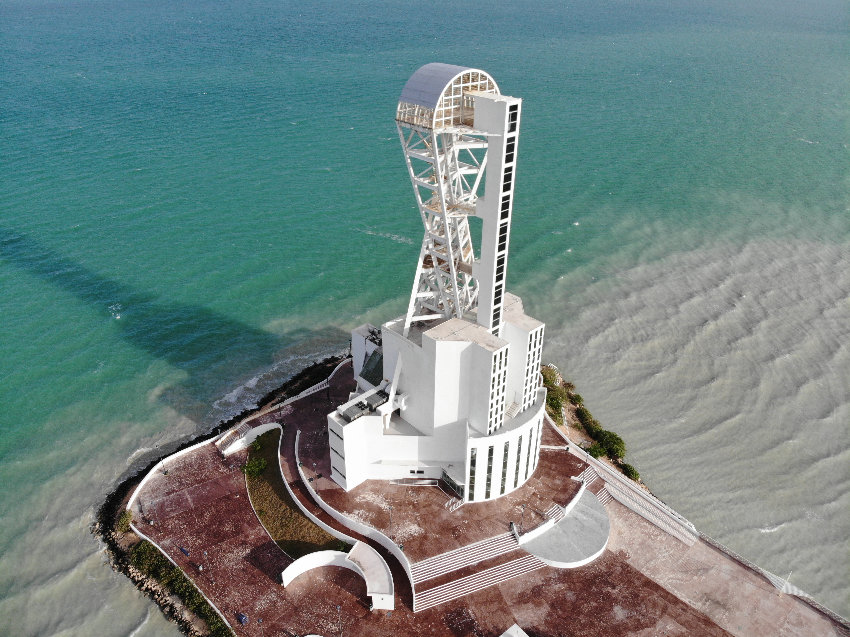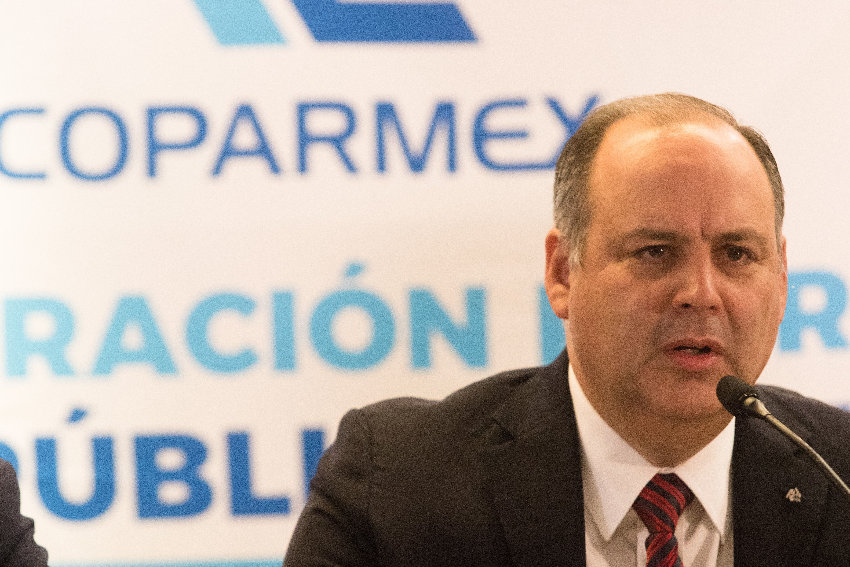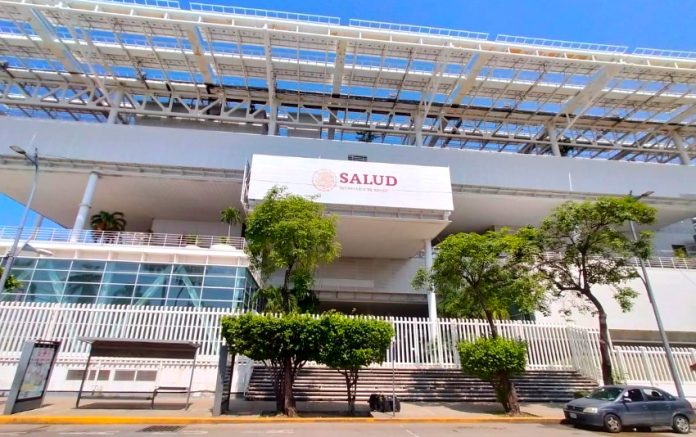The federal government’s ambitious plan to move over 30 ministries and other departments out of Mexico City to various locations around the country mostly remains just that – a plan – five years after it was first proposed.
Just eight of 32 departments slated for relocation have actually moved, the newspaper El Universal reported Monday. The decentralization is only partial or in the very early stages of execution in some of those cases.

Let’s take a look at the current decentralization situation and revisit the government’s underlying motivations for its plan.
What is (or was) the plan?
Before he took office in late 2018, López Obrador announced a plan to decentralize the federal government by moving numerous departments to different cities across the country, supposedly to ease population pressure in Mexico City and spur development elsewhere.
In a lengthy policy document published before he was sworn in as president, AMLO said that the country’s “exacerbated centralism” – with “practically the entire federal government” and many major businesses in Mexico City – has led to overpopulation in the capital while smaller cities remain underdeveloped, according to a Guardian newspaper report.

The president’s office told El Universal that López Obrador’s campaign promise to decentralize the federal government is still expected to be fulfilled during the current six-year term of government, which will conclude on Sept. 30, 2024.
However, the likelihood of that occurring would appear to be very low given the scant progress that has been made to date.
Which departments have actually moved at least part of their operations?
The eight departments that confirmed their partial or total relocation following requests for information submitted by El Universal are:
-
The Ministry of the Environment and Natural Resources (Semarnat)
One division of Semarnat – the Office of the Deputy Minister for Environmental Policy and Natural Resources – has moved to Mérida, Yucatán, El Universal reported. Semarnat said in late 2021 that six areas of the ministry would move to Mérida by the end of that year.
-
The Ministry of Welfare (Bienestar)
Bienestar told El Universal that its “activities have now begun” in Oaxaca City.
However, an article published by the Buzos news website in early July described the transfer of the ministry to Oaxaca as “a failure,” noting, among other things, that a security guard advised that it would be better to direct questions about welfare-related matters to Bienestar offices in Mexico City.
-
The Ministry of Culture (Cultura)
Cultura told El Universal that it is renting an office building in the Tlaxcala municipality of Apetatitlán de Antonio Carvajal, located near the state capital. However, most employees remain in Mexico City.
The newspaper Excélsior reported in early June that the building in Tlaxcala was empty four months after the ministry pledged to transfer at least 180 workers there.
-
The Ministry of Labor and Social Welfare (STPS)
The STPS said that its new headquarters in León, Guanajuato, have been operational since July 31, although the building wasn’t officially inaugurated until the middle of August.
The newspaper El Sol de León reported that the opening of the new office was “part of the first step” of the ministry’s decentralization plan.
-
The Ministry of Energy (SENER)
SENER told El Universal that its headquarters are still in Mexico City, but added that it now also has offices in Villahermosa, Tabasco. Energy Minister Rocío Nahle deals with energy sector matters including ones related to the new Pemex refinery on the Tabasco coast from the SENER offices in the Gulf coast state, the ministry said.
-
The Ministry of Health (Salud)
Salud is now based in the Pacific coast resort city of Acapulco, Guerrero. However, the ministry didn’t disclose to El Universal how many employees have actually moved to Acapulco from Mexico City.
-
Petróleos Mexicanos (Pemex)
The state oil company told El Universal that it has completed its transfer to Ciudad del Carmen, Campeche, by moving 2,458 employees there from 11 entities around the country. The relocation process occurred over the past four years, it said.
In a report sent to the Senate earlier this year, Pemex cited very different numbers. The company said that 15,730 employees had left Mexico City for different states around the country, including Campeche and Tabasco, where its exploration and production division is based. Pemex said that 88% of its entire workforce is now based outside Mexico City.
-
The National Water Commission (Conagua)
Conagua took possession of a former Pemex building in Veracruz city in April, but the commission told El Universal that the transfer there is still “in process.”
What about the other government departments slated for relocation?
Nineteen departments told El Universal that their decentralization plans haven’t been acted upon in any meaningful way for a range of reasons, including a lack of resources.

Among those 19 departments are the Ministry of the Economy, which was slated to move to Monterrey, Nuevo León; the National Immigration Institute, which was supposed to relocate to Tijuana, Baja California; the Ministry of Public Administration, which was going to head to Querétaro; and the National Customs Agency, which the federal government planned to move to Nuevo Laredo, Tamaulipas.
The Ministry of Tourism said it has a building lined up in Chetumal, Quintana Roo, but a moving date hasn’t been set, while the Ministry of Infrastructure, Communications and Transport told El Universal that there is a “proposal” for it to occupy a state government building in San Luis Potosí.
Five government departments declined to disclose the status of their decentralization plans to El Universal. Among those departments were the National Aquaculture and Fisheries Commission, which was slated to move to Mazatlán, Sinaloa; the Ministry of Public Education (Puebla city); and the Mexican Social Security Institute, or IMSS (Morelia, Michoacán).
The newspaper Milenio reported earlier this month that the Education Ministry was still looking for a suitable building for new headquarters in Puebla city. A first group of 100 IMSS workers transferred to Morelia in February, but the institute hasn’t yet established headquarters in the Michoacán capital.
What was the initial reaction to the decentralization plan?
Many government employees promptly expressed their opposition to moving the departments they worked for out of Mexico City.

In a letter sent to López Obrador in July 2018, Environment Ministry workers said that moving the department would in many cases break families up because a Semarnat employee would be obliged to move to Mérida whereas his or her partner may have to move to a different state if they work for another ministry that was slated to be relocated.
The employees also said the decision to relocate the ministry failed to take into account the fact that many of them have mortgages, and didn’t consider the education situations of their children, whose schooling could be disrupted.
Employees of other departments including the Culture Ministry and the Health Ministry also opposed López Obrador’s decentralization plan.
In September 2018, the president of the Mexican Employers Federation at the time, Gustavo de Hoyos Walther, said that the decentralization of government departments would be one of the most expensive projects ever undertaken in the history of public administration in Mexico. He estimated a total cost of at least 125 billion pesos (US $7.3 billion at today’s exchange rate). Only a very small fraction of that amount appears to have been spent on the still very much incomplete decentralization plan.
Real estate industry representatives welcomed federal government plans to relocate some of its departments, contending that it would be a boon for the sector. But the decentralization plan so far doesn’t appear to have brought any major economic benefits to the countries’ regional cities.
With just over a year left in office, López Obrador is far more focused on completing public infrastructure projects than moving government departments out of the capital.
Some of those projects, such as the Maya Train railroad, the Tulum airport and the Isthmus of Tehuantepec trade corridor, are helping to fuel strong economic growth in Mexico’s south and southeast.
With reports from El Universal
